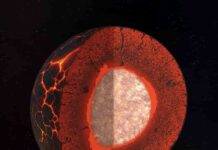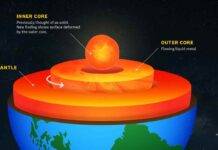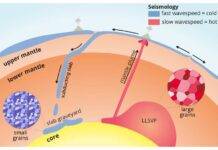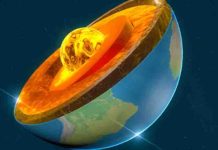
Provocative new research published this month in the journal Geology suggests that oceanic plate subduction was operating from the earliest times in Earth’s history, meaning conditions for the formation of life may have existed up to a billion years earlier than generally thought.
These findings came from a team of Australian researchers, who analysed similarities between modern-day subduction zones near Japan and early-Earth rock sequences from Quebec, Canada.
Subduction is a process whereby an oceanic plate descends beneath another plate (a characteristic of modern plate tectonics).
Lead author, Macquarie University’s Professor Simon Turner says, “Modern subduction settings, such as the Mariana arc, have all the right chemical ingredients to grow and sustain primitive life forms.
“From the similarities of our research into the earlier deposits from Canada, it follows that the conditions for the formation of life may have existed much earlier, with subduction starting far longer ago than we’d thought previously.”
The early Earth’s geological processes remain a fundamental question for the earth sciences and the rareness of rocks from this time period make exploration a significant challenge.
“We expect that this research will result in a lot of debate across the discipline, as there’s much that is yet to be discovered in the processes and earliest records of subduction. Our next steps are to investigate Zn isotopes which could show whether high pH fluids were present to stabilise amino acids, and we’ll continue to explore the secrets under the Earth’s crust”.
Note : The above story is based on materials provided by Macquarie University










